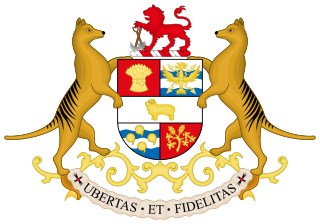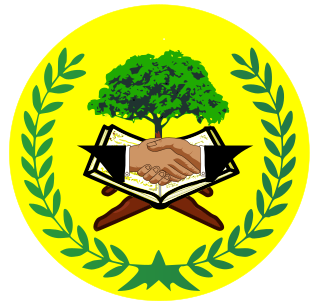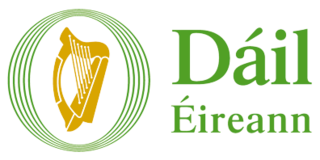Albania is a unitary parliamentary constitutional republic, in which the president of Albania is the head of state and the prime minister of Albania is the head of government in a multi-party system. The executive power is exercised by the Government and the prime minister with its Cabinet. Legislative power is vested in the Parliament of Albania. The judiciary is independent of the executive and the legislature. The political system of Albania is laid out in the 1998 constitution. The Parliament adopted the current constitution on 28 November 1998. Historically Albania has had many constitutions. Initially constituted as a monarchy in 1913, Albania became briefly a republic in 1925, and then a authoritarian monarchy in 1928. In 1939 Albania was invaded by Fascist Italian forces, imposing a puppet state, and later occupied by Nazi German forces. Following the partisan liberation from the Nazis in 1944 a provisional government was formed, which by 1946 had transformed into a communist one-party state. In March 1991 democracy was restored with multi-party elections.

Open list describes any variant of party-list proportional representation where voters have at least some influence on the order in which a party's candidates are elected. This is as opposed to closed list, in which party lists are in a pre-determined, fixed order by the time of the election and gives the general voter no influence at all on the position of the candidates placed on the party list.

The Parliament of Tasmania is the bicameral legislature of the Australian state of Tasmania. It follows a Westminster-derived parliamentary system and consists of the governor of Tasmania, the Legislative Council, and the House of Assembly. Since 1841, both Houses have met in Parliament House, Hobart. The Parliament of Tasmania first met in 1856.
An absentee ballot is a vote cast by someone who is unable or unwilling to attend the official polling station to which the voter is normally allocated. Methods include voting at a different location, postal voting, proxy voting and online voting. Increasing the ease of access to absentee ballots is seen by many as one way to improve voter turnout through convenience voting, though some countries require that a valid reason, such as infirmity or travel, be given before a voter can participate in an absentee ballot. Early voting overlaps with absentee voting. Early voting includes votes cast before the official election day(s), by mail, online or in-person at voting centers which are open for the purpose. Some places call early in-person voting a form of "absentee" voting, since voters are absent from the polling place on election day.

Postal voting is voting in an election where ballot papers are distributed to electors by post, in contrast to electors voting in person at a polling station or electronically via an electronic voting system.
Regular elections in Albania are mandated by the Constitution and legislation enacted by Parliament. The Parliament (Kuvendi) has 140 members elected for four-year terms. The electoral system is open list proportional representation. There are 12 multi-member constituencies corresponding to the country's 12 administrative regions. Within any constituency, parties must meet a threshold of 3 percent of votes, and pre-election coalitions must meet a threshold of 5 percent of votes.

Elections in Bhutan are conducted at national (Parliamentary) and local levels. Suffrage is universal for citizens 18 and over, and under applicable election laws. In national elections, also known as the general elections, political party participation is mainly restricted to the lower house of Parliament, and by extension, to the executive nominated by its majority

There are three types of elections in Nepal: elections to the Federal Parliament, elections to the provincial assemblies and elections to the local government. Within each of these categories there may be by-elections as well as general elections. Currently three electoral systems are used: parallel voting for House of Representatives and provincial assemblies, Single transferable vote for National Assembly and first past the post for local elections.
Elections in Luxembourg are held to determine the political composition of the representative institutions of the Grand Duchy of Luxembourg. Luxembourg is a liberal representative democracy, with universal suffrage guaranteed under its constitution. Elections are held regularly, and are considered to be fair and free.

There are 39 multi-member electoral districts, known as Dáil constituencies, that elect 160 TDs, to Dáil Éireann, the house of representatives of the Oireachtas, Ireland's parliament, on the system of proportional representation by means of the single transferable vote (PR-STV), to a maximum term of five years. The configuration of constituencies and seats per constituencies has been reviewed, and is subject to Oireachtas approval.

The parliament of Uganda is the country's legislative body. Unicameral, the most significant of the Ugandan parliament's functions is to pass laws that will provide good governance in the country. The government ministers are bound to answer to the people's representatives on the floor of the house. Through the various parliamentary committees, parliament scrutinises government programmes, particularly as outlined in the State of the Nation address by the president. The fiscal issues of the government, such as taxation and loans need the sanction of the parliament, after appropriate debate. Parliament must confirm some Presidential nominations and may force a Minister to resign by passing a motion of censure.

The House of Assembly is the legislature of Dominica. It is established by Chapter III of the Constitution of Dominica, and together with the President of Dominica constitutes Dominica's Parliament. The House is unicameral, and consists of twenty-one Representatives, nine senators, and the Attorney General as an ex officio member. The Speaker of the House becomes the thirty-second member if chosen from outside the membership of the House.

The House of Elders, also known as the Guurti, is the upper house of the Parliament of Somaliland. It has 82 members, representing traditional leaders. The House of Elders is mandated with considering bills proposed by the lower house of the parliament, the Somaliland House of Representatives.
Suffrage, the right to vote, is sometimes extended to non-citizens. This right varies widely by place in terms of which non-citizens are allowed to vote and in which elections, though there has been a trend over the last 30 years to enfranchise more non-citizens, especially in Europe.

The National Assembly is the elected lower house of Bhutan's bicameral Parliament which also comprises the Druk Gyalpo and the National Council.
Electoral reform is a change in electoral systems which alters how public desires are expressed in election results.

Dáil Éireann is the lower house, and principal chamber, of the Oireachtas, which also includes the president of Ireland and a senate called Seanad Éireann. It consists of 160 members, each known as a Teachta Dála. TDs represent 39 constituencies and are directly elected for terms not exceeding five years, on the system of proportional representation by means of the single transferable vote (PR-STV). Its powers are similar to those of lower houses under many other bicameral parliamentary systems and it is by far the dominant branch of the Oireachtas. Subject to the limits imposed by the Constitution of Ireland, it has power to pass any law it wishes, and to nominate and remove the Taoiseach. Since 1922, it has met in Leinster House in Dublin.

The right of expatriates to vote in elections in their country of origin varies depending on the legislation of an expatriate's country of origin. Some countries grant their expatriate citizens unlimited voting rights, identical to those of citizens living in their home country. Other countries allow expatriate citizens to vote only for a certain number of years after leaving the country, after which they are no longer eligible to vote. Other countries reserve the right vote solely to citizens living in that country, thereby stripping expatriate citizens of their voting rights once they leave their home country.

Government of the Kingdom of Eswatini is the union government created by the constitution of Eswatini where the monarch holds supreme executive, legislative, and judicial powers. The Ngwenyama (lion) is a hereditary leader, rules the country, with the assistance of a council of ministers and a national legislature.

An election for the members of the Constitutional Convention was held in Chile between 15 and 16 May 2021. This election was called after 78% of voters in the 2020 national plebiscite voted to write a new Constitution through this method.














